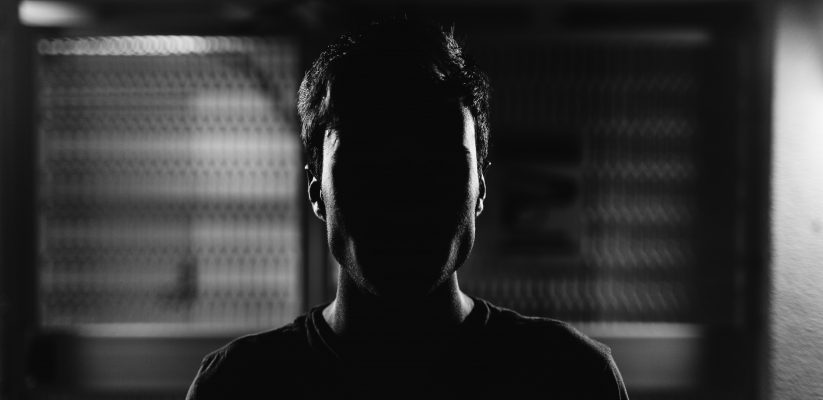Author: Dr Kennath Widanaralalage
When talking about sexual violence, we often think about the experiences of women and girls by the hands of male perpetrators. Whilst women represent the majority of sexual violence victims, an increasing number of men are coming forward to disclose their experiences of sexual victimisation. Some campaigners argue that 1 in 6 men and boys experiences sexual abuse once in their lifetime. Furthermore, like women, men are extremely reluctant to report their incidents to the police, and when they do, they are often dissatisfied from the outcome. It is difficult to understand the prevalence and incidence of sexual violence in men: what is certain, however, is that the consequences can be physically and psychologically devastating. As such, it is essential that, as a society, we start recognising men’s sexual victimisation.
Despite its incidence and consequences, the rape and sexual abuse of men is a widely misunderstood and often belittled phenomenon in society. This is due to a number of stereotypes surrounding men and masculinities, known as ‘male rape myths’: “men are too strong to be raped”; “only gay men are raped”; “a man who has an erection/ejaculate cannot be raped”; “rape is not traumatic for men”; “men are only raped in prisons”; “only men who are big and strong are able to rape other men”.
Narratives around men’s resilience, strength, and sexual desire have created an environment in which male survivors feel unable to freely voice their experiences and encounter several barriers to seek mental health support and report to the police. During my PhD, I worked with services across the UK to explore the experiences of men who were raped and sexually abused after the age of 13. In this research, I wanted to bring forward survivors’ voices by focusing on how they made sense of being a man who experienced abuse and the challenges encountered in their personal lives.
Recruiting male survivors was challenging, given the sensitive nature of the topic. Often interested participants would withdraw to safeguard their wellbeing. After two years of recruitment and work, I was fortunate to speak to nine male survivors. The men in the study gave candid and transparent accounts about their victimisation, talking about the challenges to recognise their experiences, disclose to others, access support services, and report to the police. Participants in the study often spoke about how they felt ‘invisible’, not only in society but also in their interactions with friends and families:
No one could conjure up any . . . all the empathy wasn’t because they’d experience something similar or heard about something similar . . . there was literally no awareness of men being raped. Certainly, that was reflected in my family, I just don’t think they understood.
The inability to freely speak about their experiences led many survivors to internalise their traumatic experiences. Some studies indicate that men ‘hide’ their victimisation for several years, sometimes even decades This was the case for many participants in our study, who often blamed themselves for the incidents:
Thirty-two years locked away in the back of my head, in a box. I didn’t feel I was a victim, I thought I got myself into.
The need to take on responsibility was often related to masculinity ideologies and how men should behave in society, as respectable and resilient:
I don’t want to be a circus animal in front of a crowd. I wanted to just be like the person next to me. A lot of my life has been hiding just to blend in, a childhood pattern of internalising to look like respectable people [. . .] trying to forget, ignore, play it down, minimise it. You haven’t [lied], just denied it: “Oh, it only happened once or twice”.
Some of the participants also spoke about their experiences with the police. Initially, men decided to report to the police as part of a personal therapeutic journey to recognise and accept their experiences as real and serious. Despite these positive attitudes towards the criminal justice system, all participants experienced negative responses from police officers, indicative of wider societal attitude. The hostility encountered with the police pushed survivors to drop their case, to protect themselves from additional harm:
They don’t give the impression they’re on your side. They give the impression they’re going to argue, question you as if you’re the one doing the wrong. You feel like you’re guilty until proven innocent, rather than innocent until proven guilty. You doubt your own decisions, made me feel like [reporting] was wrong and I potentially ruined someone else’s life by reporting them.
The stories gathered in this study speak about how men come to terms with a type of violence that still is hidden, invisible, and taboo in our society. At times, survivors’ stories of trauma reflected their frustration with how society understood or spoke about sexual violence, overlooking and dismissing men. However, they were also the first to bring forward solutions to raise public awareness and improve services for men to receive dedicated mental health support. In many ways, our research is a call for scholars, campaigners, policy makers, and the public to give a space for men to feel like their stories matter.
If you are interested in reading the full paper, you can find it here.
Author’s biography:
Dr Kennath Widanaralalage is a Lecturer in Psychology and Criminology at the University of Westminster. His research focuses on sexual violence, raped and sexually victimised men, and the barriers to disclosure, help-seeking, and access to formal support and criminal justice services. Taking an inter-disciplinary and intersectional approach, his research aims to give voice to the experiences of victims from seldomly-heard and marginalised communities.
